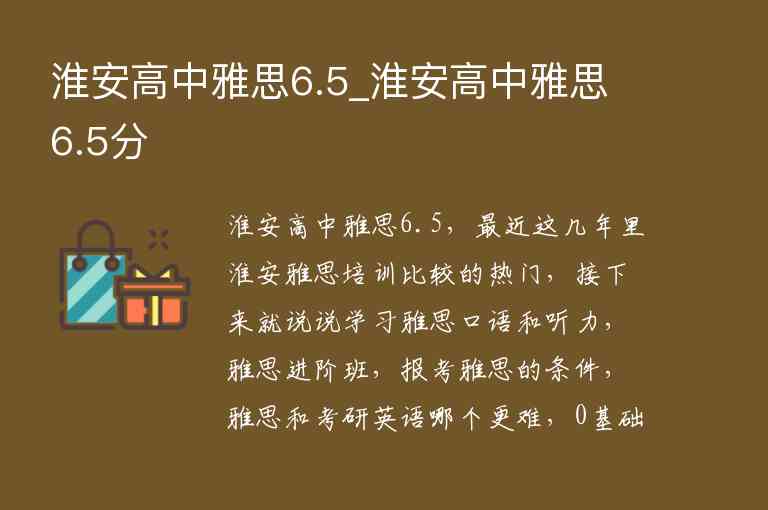一:analyse是什么意思?用法、例句过去式-单词大全的意思
analyse是一个英语动词,意为“分析”,“解析”。它可以指对事物进行深入的研究和分解,也可以指将复杂的问题或情况分解为更容易理解的部分。在过去式中,analyse变为analysed。
二:怎么读(音标)
analyse的音标为/ˈæn.ə.laɪz/。
三:用法
1. analyse作为及物动词时,后面通常跟着宾语,表示对某个事物进行细致的研究和分析。
例:The scientists analysed the data collected from the experiment.
科学家们对实验收集到的数据进行了分析。
2. analyse也可作为不及物动词使用,后面不跟宾语,表示对某个问题或情况进行深入的思考和探讨。
例:He spent hours analysing the situation and trying to come up with a solution.
他花了几个小时来分析这种情况,并试图找出解决方案。
3. analyse还可以指对文字、文本等进行详细地解读和阐释。
例:The literary critic analysed the novel in his latest book.
这位文学评论家在他最新出版的书中对这部小说进行了详细的分析。
4. 在医学领域,analyse可以指对患者的症状和体征进行检查和分析。
例:The doctor analysed the patient's blood sample to determine the cause of the illness.
医生对患者的血液样本进行了分析,以确定疾病的原因。
5. analyse也可以作为名词使用,表示“分析”,“解析”的过程或结果。
例:The analysis of the data showed a clear trend.
对数据的分析显示出明显的趋势。
四:例句1-5句且中英对照
1. The detective analysed the crime scene and found a crucial piece of evidence.
这位侦探对犯罪现场进行了分析,找到了一条关键证据。
2. The teacher asked her students to analyse the poem and identify its themes.
老师要求学生们分析这首诗并找出它的主题。
3. The financial analyst analysed the company's financial statements and made recommendations for improvement.
财务分析师对公司的财务报表进行了分析,并提出了改进建议。
4. The therapist helped her patient analyse his dreams to gain insight into his subconscious mind.
治疗师帮助她的患者分析他的梦境,以获得对他的潜意识有所启发。
5. After analysing all the options, we decided to go with the most cost-effective solution.
经过仔细分析所有选项后,我们决定选择最具成本效益的解决方案。
五:同义词及用法
1. examine:指对某个事物进行仔细的检查和研究,强调细致和全面。
例:The doctor examined the patient thoroughly before making a diagnosis.
医生在作出诊断之前对患者进行了全面的检查。
2. scrutinize:指对事物进行仔细的审视和分析,强调细致入微。
例:The accountant scrutinized the company's financial records to find any discrepancies.
会计师仔细审查了公司的财务记录,以任何差异。
3. dissect:指对复杂的问题或情况进行详细地分解和分析。
例:The professor dissected the theory in his lecture, making it easier for us to understand.
教授在讲座中详细剖析了这一理论,使我们更容易理解。
4. evaluate:指对某个事物进行评估和判断,强调根据一定标准来做出客观评价。
例:The coach evaluated the players' performance and decided on the starting lineup for the game.
教练评估了球员们的表现,并决定了比赛的首发阵容。
5. interpret:指对文字、语言等进行解释和阐释,也可以指从某种角度来看待问题或情况。
例:The historian interpreted the ancient text and provided a new understanding of the events.
历史学家解释了古代的文本,并提供了对的新认识。
六:编辑总结
analyse是一个常用的动词,意为“分析”,“解析”。它可以指对事物进行深入的研究和分解,也可以指将复杂的问题或情况分解为更容易理解的部分。在医学领域、文学领域和商业领域都有广泛的应用。其同义词包括examine、scrutinize、dissect、evaluate和interpret等。使用时需根据具体语境选择合适的动词,以准确表达所要表达的含义。



